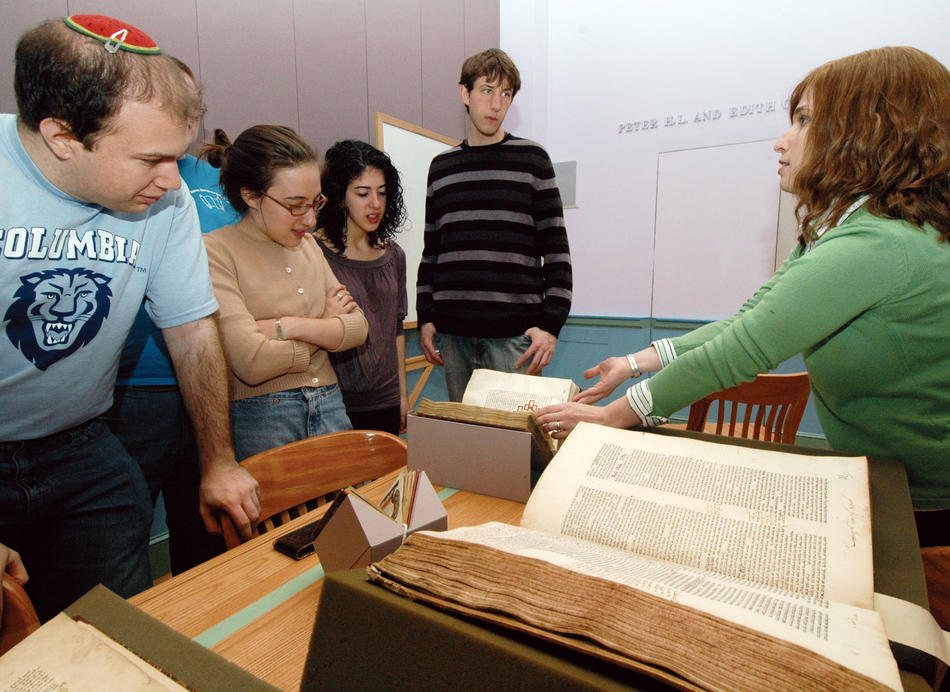Columbia has been at the forefront of academic Jewish studies since Salo Wittmayer Baron, the late Columbia historian, pioneered the modern discipline in the 1930s. Yet the University’s vast library holdings in Jewish history, literature, and culture are not well organized or easy to search: They’re spread out across several libraries, and some aren’t even cataloged.
Now Columbia is undertaking a major project to sort through its Judaic materials and make them more accessible. The effort is being led by Columbia’s first dedicated Jewish-studies librarian, Michelle Chesner, whose work will result in a Web site showcasing all of Columbia’s Judaic materials, including some 1500 Hebrew manuscripts, hundreds of Hebrew books from the 15th and 16th centuries, and thousands of Yiddish titles and Jewish scholarly works in Western and Slavic languages.
This virtual library — the Norman E. Alexander Library for Jewish Studies — is to be named in honor of the late College and law-school graduate who died in 2006, at age 92, having arranged to donate $4 million to Columbia. His gift creates endowments for Chesner’s position as well as for the purchase of new materials and rare books relevant to Jewish studies.
Chesner recently began cataloging Columbia’s unsorted Judaic materials. She also plans to add keywords to the electronic records of Judaic materials that are already sorted to make them more visible for library patrons. For instance, a student who reviews the online records of the papers of Russian-born translator Mirra Ginsburg soon will see that Columbia also owns an early typescript of The Manor, a novel by the Nobel Prize-winning Yiddish author Isaac Bashevis Singer, whom Ginsburg translated.
Jeremy Dauber, a Yiddishist and the director of the Institute for Israel and Jewish Studies, hadn’t realized that Columbia owned the Singer typescript until Chesner mentioned it. “It’s widely known that Singer’s papers are at the University of Texas at Austin, so this was a surprise,” he says. “I’m sure there are more hidden treasures waiting to be found.”



